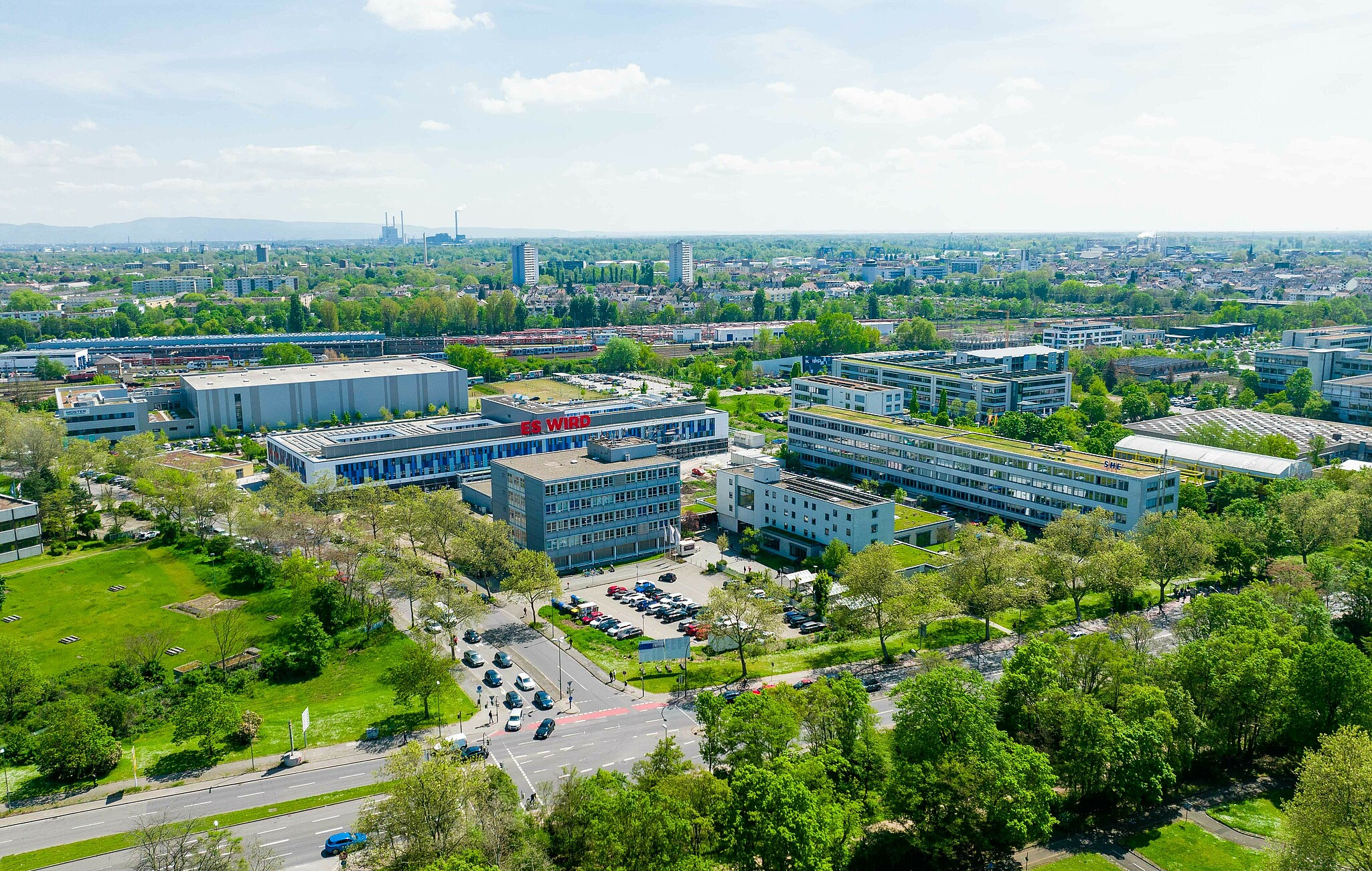Nursing pedagogical symposium at the University of Applied Sciences Ludwigshafen 2018
The past, present and future of nursing education.
Ludwigshafen, 02.07.2018
Great interest in nursing education symposium - symposium also marks the end of the teaching activities of conference initiator and organizer Prof. Dr. Karl-Heinz Sahmel at the Ludwigshafen University of Business and Society, who will retire in September.
On Thursday, June 28, 2018, the Ludwigshafen University of Business and Society hosted a nursing education conference on the topic of "Past, present and future of nursing education". Under the direction of Prof. Dr. Karl-Heinz Sahmel, Professor of Nursing Education and Nursing Science at the Department of Social and Health Care, over 200 specialists, managers and educators in the field of nursing and nursing education sought to exchange ideas on the currently much-discussed topic of nursing education.
After the welcome address by University President Prof. Dr. Peter Mudra and Prof. Dr. Andreas Rein, Vice Dean of the Department of Social and Health Care, nursing expert and event initiator Prof. Dr. Karl-Heinz Sahmel gave an introduction to the topic. He drew a wide arc from the beginnings of the relatively young discipline to its currently uncertain future. "In the 19th century, the training of nurses was the responsibility of doctors and matrons with no previous pedagogical training. In addition to imparting specialist knowledge, the training served to build character and was based on the primacy of service at the bedside or self-sacrificing service to patients," says Sahmel. This idea still has an impact today and shapes the ideological concept of nursing and nursing education. For example, the claim that nursing education is far removed from practice is still a much-heard argument today. In the 1980s, Sahmel continues, the idea of nursing as a "vocation" that had dominated for many decades, with a clear subordination of nurses to the medical profession as propagated, for example, by the Catholic nun Liliane Juchli in her nursing textbook that became a classic, was slowly becoming fragile. There is also resistance among so-called teaching nurses to being treated as "second-class teachers" - without a degree, without protection of their professional title and with significantly lower social status and pay than vocational school teachers. Driven by a memorandum published by the Robert Bosch Foundation in 1992, a broad discussion emerged in the 1990s about the academization of nursing teacher qualifications, which led to the establishment of corresponding degree programs at colleges and universities and a corresponding plurality of academic education in this field. With the switch to Bachelor's and Master's degree courses as part of the Bologna reform, the idea of efficiency is also becoming more important. "What are the next steps in view of the nursing crisis, the Nursing Professions Act and the increasing shortage of skilled workers in the field of nursing teaching? Where will the discipline of nursing education be positioned in the future between vocational education, critical educational science and nursing didactics?" - Sahmel posed these questions to the plenary for discussion.
The symposium was then dominated by critical and constructive exchange: in workshops led by Prof. Dr. Mechthild Löwenstein from Esslingen University of Applied Sciences, Dr. Armin Leibig and Yvonne Zenz from Ludwigshafen University of Business and Society, the key questions raised by Sahmel and the topics of pedagogical principles, skills at the heart of qualifications, nursing training and the nursing crisis were examined from various perspectives and brought together in the concluding panel discussion. The participants came to the conclusion that the much-cited "temporary crisis in nursing" had already reached the status of a permanent emergency. Digitalization and mechanization could make things easier. The participants also saw skills orientation - such as reflective skills, transfer learning and exemplary teaching in both theory and nursing practice - and meeting at eye level as a step in the right direction. It was up to the carers themselves to shape change. Nevertheless, a certain skepticism towards the use of new technologies and against an exact separation and measurement of competencies was noticeable at the conference: human dignity must continue to be the principle of all nursing and the subject of pedagogical action, according to the broad consensus. Nursing education should and could also contribute to improving the overall situation in nursing: "Cooperation and collaboration between teachers and students is important, as is strengthening the social view of nursing and the development of teaching at different levels of severity," said Dr. Armin Leibig, summing up the results of the workshop he chaired. Cooperation between theory and practice should also be further intensified through learning partnerships, as nursing management and nursing education are interested in reaching a consensus. The group led by Yvonne Zenz dealt with the important pedagogical question of the legitimacy of "shaping" the "attitudes" of nursing trainees.
With this year's symposium, the long-time organizer and initiator, Prof. Dr. Karl-Heinz Sahmel, who will retire in September, officially bids farewell as a university lecturer from the Ludwigshafen University of Business and Society. However, he will continue to work as an author of specialist publications on nursing and nursing education and as an educator at the Steinbeis Academy in Marburg and at the Institute of Nursing Science at UMIT in Hall, Austria. The Nursing Education Conference will also take place again next year. Dr. Armin Leibig, the designated successor to the professorship of Prof. Dr. Karl-Heinz Sahmel, will then be responsible for its management and organization.
Specialist contact:
Ludwigshafen University of Business and Society
Prof. Dr. Karl-Heinz Sahmel
Professor of Nursing Education and Nursing Science
Department of Social and Health Care
Tel. 0621/5203-550
E-mail:
